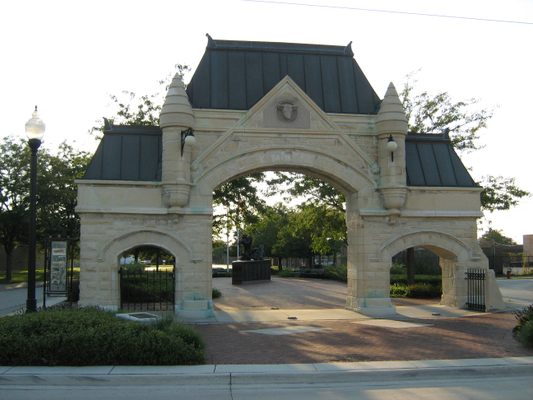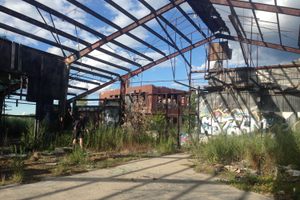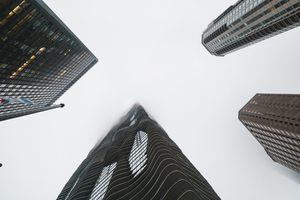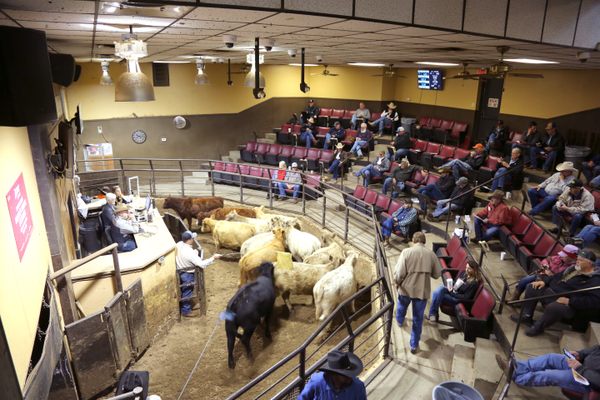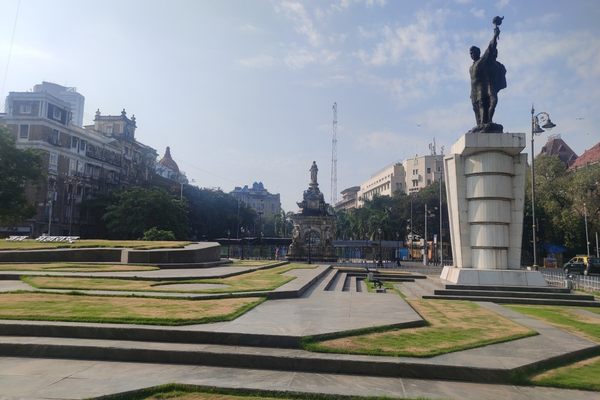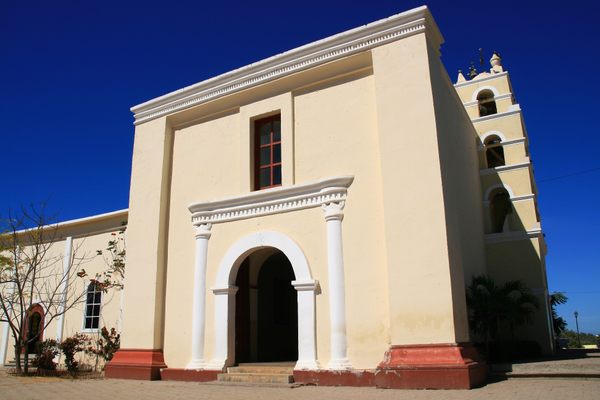About
Before Millennium Park and Navy Pier, people lined up to watch a more macabre attraction. Crowds gathered to see hogs, sheep, and steer meet their swift and brutal demise in Chicago’s Union Stockyards.
Opened on Christmas Day 1865, the Union Stockyards were a consolidation of smaller stockyards that could slaughter thousands of animals a day thanks to the mechanized “disassembly line.” It stretched across 475 acres and was a bloody hub for livestock and meatpacking.
The yard’s swift ability to execute livestock earned the city the nickname the “hog butcher to the world.” The dangerous and unsanitary conditions were immortalized in the Upton Sinclair classic The Jungle.
After the Stockyards closed in 1971, the site was cleared. Only the original limestone gates remain. Designed by the White City architects Burnham and Root, the gate is 32 feet tall and features a large central gate flanked by two smaller gates. The structure became an official landmark in 1972.
If you look above the large gate, you will find its most unique architectural aspect. Dead center is a bust of Sherman, a prize winning steer, who seems to be looking directly at anyone driving west from Halsted Street just as he gazed over the thousands of people who once watched and participated in the meatpacking action.
Related Tags
Know Before You Go
The gate is located on Exchange Ave, about one block west of Halsted. It's free to visit and you can park on the street. It’s open all hours but it might not be lit up at night. The area can get busy with traffic just before or after a White Sox game in nearby Bridgeport.
Directly behind the gate you can visit the Firefighter’s Memorial, which is dedicated to firemen who died in the line of duty putting out the many blazes that erupted in the Stockyards.
Community Contributors
Added By
Published
July 30, 2018
